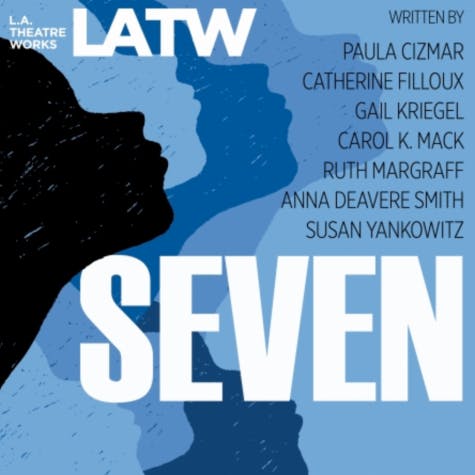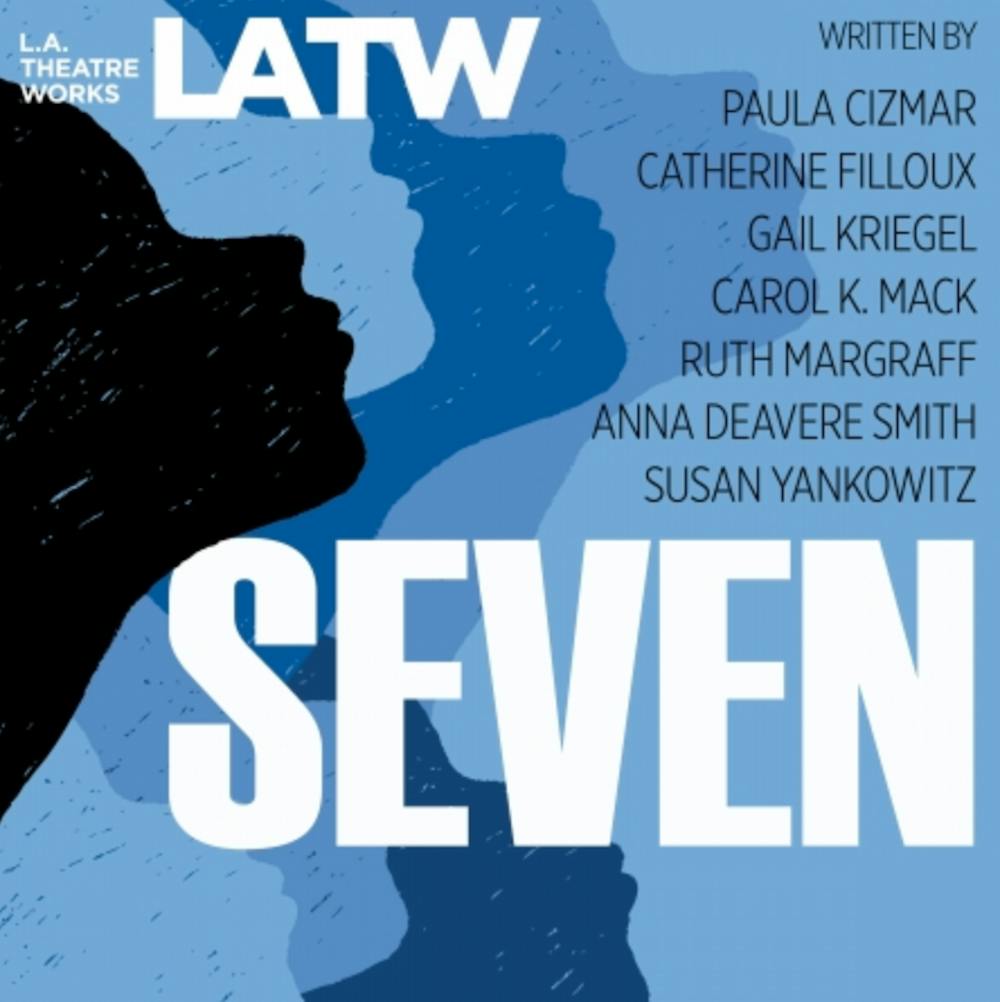Imagine feeling silenced, voiceless. Imagine feeling as though even if you were to speak, no one would care to hear what you had to say, much less act on it, no matter the importance of your words.
In the documentary play “SEVEN,” L.A. Theatre Works explores the true stories of seven women who found their voices by standing up for the rights of women, children and families all over the world. Despite the efforts of their peers to silence them, they persisted and overcame culturally- induced adversities to protect the well-being of those around them. By speaking out, they ultimately changed their lives and the lives of those around them for the better.
L.A. Theatre Works, a not-for-profit American media arts organization, was founded in Los Angeles in 1984. As the foremost radio theatre company in the United States for over thirty years, the organization works tirelessly to create both classic and contemporary plays that are immersive, educational and imaginative. SEVEN checks each of these boxes and more.
Through a magnificent mirage of stories, switching back and forth between tales across the globe, the audience peers into the lives of women who risked life-threatening obstacles to improve the lives of women in their respective corners of the earth. Their bravery and empathy shines through the excellence of the talented actresses: Jennifer Shelton, Tess Lina, Maritxell Carrero, Ellis Greer, Laila Ayad, Shannon Holt and Lovlee Carroll, and through the words of seven award-winning playwrights.
Associate Professor of Theatre Cláudio Medeiros commented on the play’s powerful stories and impressive acting. “Laila Ayad (Farida Azizi / Afghanistan) and Lovlee Carroll (Mukhtar Mai / Pakistan) were particularly effective in a format that for the most part keeps the actor aware that she is a narrator as well, and focuses ‘living the role’ on the voice and its ability to express a range of emotions, from pain or grief to joy and strength,” he said. “I think we made a very good choice with SEVEN. I am delighted that my students could see it, from a human perspective and as student actors.”

From the opening moments of the play, the audience is entranced by the simple stage set-up: seven microphones, all facing front, a simple projection backdrop and a telephone. Each woman stood motionless at a microphone, waiting for her turn to speak. And the play came to life. The audience is transported to Russia by Marina Pisklakova-Parker, where women victims of domestic violence were shockingly common, and then to Cambodia by Mu Sochua, where young girls were often victims of human trafficking. We travel with Farida Azizi to Afghanistan to empower rural women and with Muhtar Mai and Hafsat Abiola-Costella to Nigeria and Pakistan to fight for women’s right to education. Inez McCormack tells the story of promoting peace and equality in Northern Ireland and, finally, Anabella de León shows us how, as a young woman from Guatemala, it is possible for women to accomplish great feats such as becoming entrepreneurial leaders and running for political office.
Asked about the aspect of SEVEN that felt most meaningful, audience member and prospective theatre student Marijke Stiffler ’23 noted the “overarching theme of women supporting women.” “Too often in the media do we see women attacking each other, like Wendy Williams going after Ashley Graham for changing her son’s diaper in a Staples or Fox News correspondents ripping apart sexual assault survivors,” Stiffler said. “The fact that all of the stories were interconnected in some fashion emphasized the push for unity as it showed me that we have more in common with each other than is easily visible; moreover, it showed that nothing negative will come from unconditionally supporting the women around you through their struggles, as they will more likely than not turn around and support you in return.”
In light of SEVEN, how can we, members of the college community, mobilize in support of human rights? Maybe it is as simple as finding a way to tune in to the silence, the smaller communities where the voices have been repressed and can no longer be heard. By listening, we can become better advocates for the rights of those in need, inspiring a new global movement of change-makers: us.
'SEVEN' celebrates stories of women changemakers

COURTESY PHOTO/L.A. THEATRE WORKS
Comments



